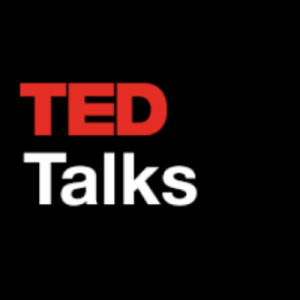by DAVID BROWN | CLEARNFO.com | May 26, 2015
“Science is the belief in the ignorance of experts.” – Richard Feynman
I’m a scientist at heart, so why do I love to ridicule my fellow scientists so much? I think it’s because of their highly exalted and unassailable position in our so called modern era (1946 – present) and because so many are sellouts who serve the selfish agendas of the moneyed “powers that shouldn’t be” and more particularly many serve down-right evil corporations that just happen to sign the front side of their paychecks, provide grants and donate huge sums to our likewise exalted and corrupted universities … and it’s also partly due to the fact so many people have been trained that if someone in a lab coat says something then it has to be true. Turn off your brain… case settled.
Though many scientists are waking up to the systemic fraud and deception throughout our scientific community, the average citizen is completely unaware.
And it appears that the ‘Scientific American’ wants to have it both ways. First they are more than willing to point out the fraud, yet they are themselves a big part of the fraud perpetrated on the hapless public as evidenced by their two articles below. One supports GMO with trickery and sleight of hand while the other article complains about ‘An Epidemic of False Claims’ in scientific studies. You can’t have it both ways, Mr. Scientific American.
I’ve been reading the Scientific American since I was twelve, yes twelve years old; though I can’t claim I understood what I was reading at that age. With all the colorful diagrams and mathematical formulas, I just knew they were talking about something important and wanted to know what it was.
So what is the evidence that the once exalted Scientific American is one of the worst offenders? If you read their article below in support of GMOs, you will discover that they have munged or commingled several terms thereby obfuscating their meanings to suit their preconceived conclusions.
I really get the promise of GMO providing food to the hungry (though recent data has disproved this benefit), but I would prefer to use artificial or natural selection, not transginic bioengineering using gene-splicing and gene insertion from different species. I just don’t trust Monsanto and now I don’t trust SA. I think this article represents the best of bad science: The SA article cleverly commingles several terms: Selective breeding, Artificial selection, Bioengineering and GMO and would therefore have the reader believe they are the same. They are not. And there is a huge difference between Cisgenic and Transgenic. I would prefer Cisgenic only because I don’t think man is smart enough to have a clue about what he is doing. Of course we need to have GMO labeling. I don’t care if my food has been selectively bred: examples are the Delicious apple, the Hereford cow, etc. because in selective breeding you are breeding cow to cow or apple to apple; NOT cow to virus or cow to rat or pig or cow to cockroach…or some other unknown concoction Monsanto may have created. I want to know if there is virus, bacteria, transgenic DNA/RNA in my food and I want to know if there is Glyphosate a.k.a. Roundup® on my food and I want to know if it is safe. Another undisclosed issue is that when GMO corn pollinates adjacent fields of heirloom corn, it destroys for all time the genetics of that heirloom corn. On a global stage, this could be devastating.
Another glaring flaw in this SA article is that they seem content on referring to “other” authorities. Just give me the science … after all aren’t you Scientific American?
Scientific American comes out in favor of GMOs
By Ashutosh Jogalekar | September 6, 2013
From Scientific American: An Epidemic of False Claims
Competition and conflicts of interest distort too many medical findings
By John P. A. Ioannidis | May 17, 2011
Scientific American Goes Full Anti-Science
September 12, 2020/ Francis Menton
And from the Lancet, we have the following …
www.thelancet.com
Vol 385 April 11, 2015 by Richard Horton
Offline: What is medicine’s 5 sigma? (PDF)
“A lot of what is published is incorrect.” I’m not allowed to say who made this remark because we were asked to observe Chatham House rules. We were also asked not to take photographs of slides. Those who worked for government agencies pleaded that their comments especially remain unquoted, since the forthcoming UK election meant they were living in “purdah”—a chilling state where severe restrictions on freedom of speech are placed on anyone on the government’s payroll. Why the paranoid concern for secrecy and non-attribution? Because this symposium—on the reproducibility and reliability of biomedical research, held at the Wellcome Trust in London last week—touched on one of the most sensitive issues in science today: the idea that something has gone fundamentally wrong with one of our greatest human creations.”
HughPickens.com … writes in today’s Slash Dot the following brilliant little ditty…
“Richard Horton writes that a recent symposium on the reproducibility and reliability of biomedical research discussed one of the most sensitive issues in science today: the idea that something has gone fundamentally wrong with science (PDF), one of our greatest human creations. The case against science is straightforward: much of the scientific literature, perhaps half, may simply be untrue. Afflicted by studies with small sample sizes, tiny effects, invalid exploratory analyses, and flagrant conflicts of interest, together with an obsession for pursuing fashionable trends of dubious importance, science has taken a turn towards darkness. According to Horton, editor-in-chief of The Lancet, a United Kingdom-based medical journal, the apparent endemicity of bad research behavior is alarming. In their quest for telling a compelling story, scientists too often sculpt data to fit their preferred theory of the world or retrofit hypotheses to fit their data.”
“Can bad scientific practices be fixed? Part of the problem is that no-one is incentivized to be right. Instead, scientists are incentivized to be productive and innovative. Tony Weidberg says that the particle physics community now invests great effort into intensive checking and rechecking of data prior to publication following several high-profile errors. By filtering results through independent working groups, physicists are encouraged to criticize. Good criticism is rewarded. The goal is a reliable result, and the incentives for scientists are aligned around this goal. “The good news is that science is beginning to take some of its worst failings very seriously,” says Horton. “The bad news is that nobody is ready to take the first step to clean up the system.”
Additional Reading from ClearNFO:
- Misc Musings on the surety of science or why I am skeptical of ‘Well-Established’ facts.
- The Three Religions of science…
- The religion of science…
- UPDATE: GMO
- Global Warming 101
- The Walled-Garden Revisited
- and for fun … THE SCIENCE OF KISSING
And from skeptiko…
Why you, me, and our neighbors have a distrust of science and New York Times science journalists
SCIENTIFIC REGRESS by William A. Wilson May 2016





